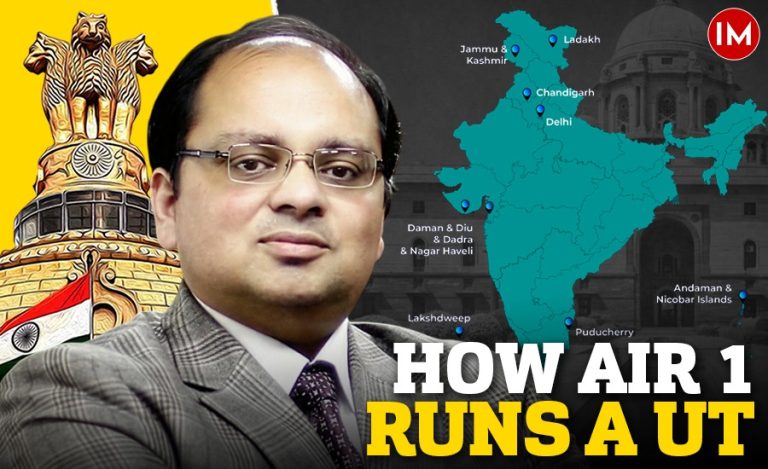Surrounded by the Aravalli Range of mountains, Udaipur is one of the most beautiful cities, sitting in the lap of north-western Rajasthan. It is called the city of lakes due to its five artificial lakes, which are an attraction for tourists. Despite having This city has been facing a water crisis for the past few years. While the city people don’t have the issue of drinking water, many blocks on the outskirts are dependent on water tankers from April to June.
With the future Dewas 3rd and Dewas 4th water supply projects, this issue will soon be resolved. The project, which would satisfy people’s water needs until 2050, is valued at Rs. 1690. Chief Minister Mr. Bhajan Lal Sharma laid the foundation stone for the project in March of this year, and it would take three years to finish.
Indian Masterminds spoke with DC, Udaipur, Mr. Arvind Kumar Poswal, to understand the reason behind this problem and how the Dewas project will ease it.
THE REASON
Udaipur has five man-made lakes. Because Aravali surrounds the city, it is part of the hill ecosystem. Over the last ten years, the uncontrolled cutting hill has disrupted not only the water supplies but also the natural flow of water. Numerous lakes with plenty of water have either started to dry up or have fully dried up.

The problem also affects “Menar,” one of the larger lakes that is significant for wildlife because seasonal birds come here to hatch. The water level has dropped drastically. This is concerning since Udaipur’s economy is primarily reliant on tourism, which is dependent on lakes. During the hottest summer months, tankers are used to deliver water to communities surrounding the major cities, such as Bargaon and Bhinder. Although the situation improves after June’s first rains, the issue is not fully resolved.
“There has been unregulated construction that has obstructed the in-lets of various lakes. 10 years ago, a few lakes completely dried up. Even vehicles used to be driven across them. Phase 1 and Phase 2 of the Dewas project eased that issue. With the 3rd and 4th phase, the water supply will increase threefold. The city will get 1000 MCFT of water in addition to the current annual supply,” said the collector. For the upcoming project, the population until 2050 has been taken into account.
In addition, the government is strictly enforcing measures to regulate the cutting of hills. In compliance with the directives from the High Court, the administration is working in coordination with the Mining Department to impose fines on any violators. Additionally, Mr. Poswal stated that a proposed state-level strategy to protect the hills will soon be put into effect.
DEWAS PROJECT
Under phase-1 of Dewas, Gorana Dam was constructed with a total capacity of 120 MCFT of water. In 2011, the second phase commenced, and a tunnel and Madi Dam were constructed with a total capacity of 302 MCFT of water. In addition to that, a long tunnel of 11.05 km was built from the dam to Lake Pichola, which boasts a water capacity of 550 MCFT.

As part of Dewas 3, a dam will be constructed in Gogunda Tehsil, whereas, as part of the fourth phase, a dam near Ambawa village will be built. In addition to this, a four-kilometer tunnel will also be constructed to connect the Dewas’ third & fourth dams.
The Public Health Engineering department has already been granted administrative & financial approval for the project. The collector added that the tender for construction has already been awarded and soon land acquisition will start. “Water is a necessity for each individual. Climate change and deforestation have led to the lowering of the water level. In Udaipur, the crisis is huge due to the tourism factor. We are hopeful that with the upcoming project, the problem will be solved for many years”, concluded Mr. Poswal.


































